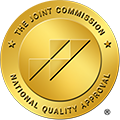At Memphis Detox, clients receive expert care in a safe, supportive environment. Our team is dedicated to providing individualized treatment plans. The alcohol detox process is a medically supervised approach designed to safely manage withdrawal and begin recovery. We ensure each person’s comfort and safety throughout the detox process with the expertise of our treatment professionals.
What Is
Alcohol Detox?
Alcohol detoxification, or alcohol detox, is the process of allowing the body to rid itself of alcohol while managing the physical and psychological symptoms of withdrawal. This process is essential for anyone seeking to break free from alcohol dependence and begin the journey to recovery. Detox is a critical first step in treating alcoholism and breaking the cycle of dependence. At Memphis Detox, we understand that detox is not just about stopping alcohol use—it’s about starting a new, healthier chapter in life. Medical intervention is often necessary to safely manage the symptoms of alcoholism during detox.
Alcohol withdrawal occurs when someone who has been drinking heavily for a prolonged period (or those who drink heavily or have a consistent drinking pattern) suddenly stops or significantly reduces their intake. The severity of withdrawal symptoms depends on many factors, including how much and how long a person has been drinking, their drinking pattern, and their overall health.
Symptoms can begin within hours and may include anxiety, tremors, sweating, nausea, and, in severe cases, seizures or delirium tremens (DTs). The severity of withdrawal depends on factors such as the duration and amount of alcohol use, overall health, previous withdrawal experiences, and several factors such as genetics and biological sex.
Medical supervision during alcohol detox is critical because withdrawal can be unpredictable and, at times, life-threatening. Trained professionals can monitor vital signs, including blood pressure, manage symptoms, and intervene quickly if complications arise. Reviewing a client’s medical history and any pre-existing medical conditions is essential for safe detoxification, as it helps determine appropriate treatment plans and identify potential risks. At Memphis Detox, our medical team provides round-the-clock care, ensuring that each client’s detox experience is as safe and comfortable as possible.
Detoxing from alcohol at home can be extremely risky. Without medical oversight, individuals are vulnerable to severe withdrawal symptoms, dehydration, and other complications that can escalate quickly. Unsupervised detox also increases the risk of serious complications and severe reactions, particularly for those who may be using other substances in addition to alcohol. In contrast, professional detox at Memphis Detox offers a structured environment, access to medications, and immediate medical support, greatly reducing the risks associated with withdrawal.

The Alcohol Detoxification Process at Memphis Detox
Upon admission, each client undergoes a thorough medical and psychological assessment. This evaluation helps our team understand the individual’s health history, substance use patterns, including alcohol intake and any use of other medications, and any co-occurring conditions. Based on this information, we develop a personalized care plan that addresses specific needs and maximizes safety and comfort during detox, ensuring the plan is integrated into the client’s overall treatment program.
Medication-assisted treatment (MAT) is a cornerstone of our detox program. Medications such as benzodiazepines, anticonvulsants, and other supportive agents may be used—such as taking naltrexone to reduce cravings or using disulfiram, which works by causing unpleasant effects if alcohol is consumed—to reduce withdrawal symptoms, prevent complications, and promote a smoother detox process. Our clinicians carefully monitor and adjust medications as needed to ensure optimal outcomes. These medications can help ease withdrawal symptoms to support a more comfortable detox experience.
Continuous medical monitoring is essential during alcohol detox. This includes monitoring the central nervous system for signs of overactivity or distress during withdrawal. Our experienced staff is available around the clock to assess vital signs, manage symptoms, and provide reassurance. This constant support not only enhances safety but also helps clients feel more at ease as they navigate withdrawal.
Withdrawal symptoms can be uncomfortable and, in some cases, dangerous, especially for individuals who are known for heavy drinking, as they are at higher risk for severe alcohol withdrawal and severe alcohol withdrawal symptoms. At Memphis Detox, we use a combination of medications, hydration, nutrition, and supportive therapies to manage symptoms effectively. Our goal is to minimize discomfort and prevent complications, allowing clients to focus on their recovery.
What to Expect During Alcohol Detox
Common Alcohol Withdrawal Symptoms
Alcohol withdrawal symptoms can vary widely, and some individuals may only experience mild symptoms that persist for a longer period, but often include anxiety, irritability, insomnia, sweating, nausea, and tremors. In more severe cases, individuals may experience hallucinations, seizures, or delirium tremens. Our team is trained to recognize and manage all levels of withdrawal, providing prompt intervention when necessary.
Alcohol Detox Timeline
The timeline for alcohol detox typically begins within 6 to 24 hours after the last drink, as the body begins to adjust to the absence of alcohol. Symptoms usually peak within 24 to 72 hours and gradually subside over the next few days. However, some individuals may experience lingering symptoms, known as post-acute withdrawal syndrome (PAWS), which can last for weeks. Our staff provides ongoing support throughout the entire process.
Comfort Measures and Support Services
At Memphis Detox, we believe that comfort is key to a successful detox experience. We offer a range of comfort measures, including private rooms, nutritious meals, and relaxation techniques. In addition, our support services—such as counseling, peer support, and holistic therapies—help address the emotional and psychological aspects of withdrawal.

Post-Detox Support and Residential Housing
After completing detox, clients are encouraged to continue their recovery in a supportive environment. Our team works closely with each individual to develop a post-detox plan that may include residential treatment, outpatient therapy, or other recovery resources. This transition is vital for maintaining momentum and preventing relapse.
Residential housing provides a safe, structured setting where clients can focus on healing without the distractions or triggers of everyday life. At Memphis Detox, our residential program offers 24/7 support, peer encouragement, and access to a range of therapeutic services. This environment fosters accountability and helps clients build a strong foundation for long-term recovery.
Therapy and counseling are integral components of our post-detox support. Clients participate in individual and group sessions that address the underlying causes of addiction, teach coping skills, and promote emotional well-being. Relapse prevention strategies are woven throughout our programming, empowering clients to navigate challenges and maintain sobriety.
Sustained recovery requires more than just abstinence from alcohol. Our team helps clients develop practical coping skills, such as stress management, communication, and problem-solving. These tools are essential for handling life’s ups and downs without returning to alcohol use.
Why Choose
Memphis Detox for Alcohol Detox?
Choosing the right alcohol detox center can make all the difference in your recovery journey. Memphis Detox stands out for its experienced team, individualized care, and comprehensive support services.
Our clinical team includes physicians, nurses, therapists, and support staff with extensive experience in addiction medicine. We take the time to get to know each client, tailoring our approach to meet their unique needs and preferences. This individualized care ensures the best possible outcomes.
Safety is our top priority. Memphis Detox provides a secure, structured environment where clients can focus on healing without outside distractions. Our facility is designed to promote comfort, privacy, and peace of mind throughout the detox process.
Recovery doesn’t end with detox. We offer a full continuum of care, including residential treatment, outpatient programs, therapy, and aftercare planning. Our goal is to support clients at every stage of their journey, from detox to long-term sobriety.

Frequently Asked Questions About Alcohol Detox
Alcohol detox typically lasts 3 to 7 days, but the exact duration depends on factors such as the severity of dependence, overall health, and individual response to treatment.
Alcohol detox can be dangerous, especially for those with severe dependence. Complications such as seizures and delirium tremens can be life-threatening without medical supervision.
Detoxing at home is not recommended due to the risk of severe withdrawal symptoms and complications. Medically supervised detox is the safest option.
After detox, clients are encouraged to continue treatment through residential or outpatient programs, therapy, and support groups to maintain sobriety. Clients are also encouraged to explore various treatment options to support ongoing recovery.
Many insurance plans cover alcohol detox and related services. Our admissions team can help verify your benefits and discuss payment options.
MAT involves the use of medications to manage withdrawal symptoms, reduce cravings, and support recovery. It is a key component of our detox program.
If you experience withdrawal symptoms when you stop drinking or are unable to control your alcohol use, you may benefit from professional detox. Tracking the number of drinks you consume can help you recognize problematic patterns and the need for professional help. Our team can provide a confidential assessment to determine the best course of action.




